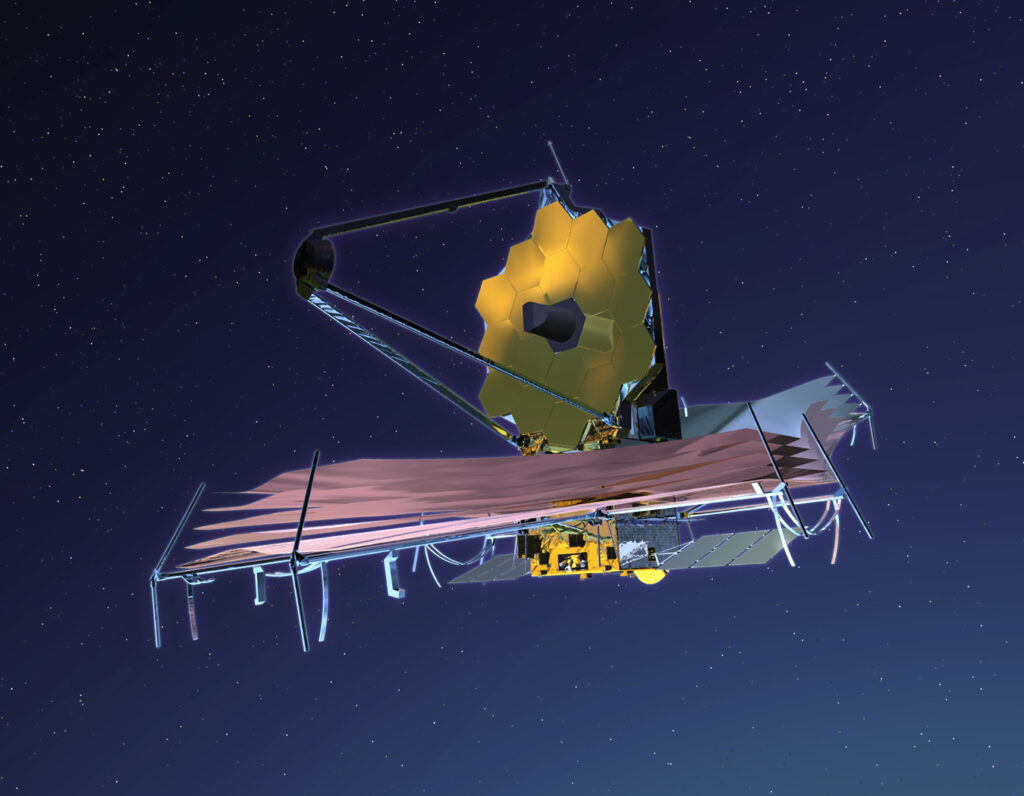In science, for each question answered, other questions are immediately opened that ask for an answer. We enter the year 2022 with several unanswered questions. And we hope that if they are not answered this year, they will be answered in the following years. The Portuguese sage Garcia da Orta stated, in the XNUMXth century, that “what we do not know today, we will know tomorrow”.
Some discoveries are unexpected. But others are the result of careful planning and prolonged effort. I offer here a list of science challenges in which, by what is planned, there will be advances in the short term.
I privileged the discoveries of Physics or related and within these, as they are more mediatic, those that have to do with space. But biomedicine is a vast field where tremendous progress will continue to be made.
NASA will fill us with news. NASA and ESA's James Webb Space Telescope, the largest ever, will begin sending its images of the Universe next June. The telescope, which has now fully opened, is en route to its position in solar orbit. The light of the first stars will be discovered and new exoplanets will be discovered, with good probability, some of them similar to Earth.
On September 24, NASA's mission will culminate Double Asteroid Redirection Test: a probe was planned to hit a small asteroid, to teach us about the possibility of deflecting an asteroid from its trajectory, if we happen to discover one dangerously approaching Earth.
NASA will soon test a new rocket, the Space launch system, which will put the unmanned Orion spacecraft on a flight, preparing the return of astronauts to the Moon from 2025.
Although it is more technology than science, American private operators will continue to develop their activities in space, such as SpaceX by Elon Musk, who will test his new rocket Starship.
In September, the European mission will leave for Mars Exo Mars 2022, from ESA, in collaboration with Russia, which will place a rover on Mars, named Rosalind Franklin, in honor of the pioneer of biochemistry, who will accompany the American perseverance (with helicopter Inaivety) and Chinese Zhuong. The goal is to detect past life on Mars.
In astrophysics, a great novelty will be the entry into operation, in Chile, of the Vera Rubin Observatory, which will to sweep space like never before.
On the other hand, after a pause for improvement, the LIGO – Virgo collaboration between the United States and Europe, to detect gravitational waves, has recently resumed its activity: its purpose is to record new collisions of black holes or neutron stars.
In addition to James Webb, there will be more news about exoplanets. One in the shape of a rugby ball has just been announced. There is increasing evidence of exoplanet moons. And there are indications of planets outside our galaxy awaiting confirmation.
At CERN in Switzerland, the LArge Hadron Collider, after three years of technical stoppage and a delay caused by the pandemic, will resume operations at full power from May.
In addition to further measurements of the Higgs particle, particle physicists are looking for new particles. A major discovery would be the detection of something that could explain dark matter, a mysterious constituent of the Universe. There are several specific experiences in the search for dark matter and, in May, there will be an international conference on the subject in Dubai.
But there is much more science beyond space and particles. I just give a few examples:
– We don't really know the future of COVID-19, but we do know that vaccines have been a huge success. Some experts expect the pandemic to become endemic, with a low number of victims. There must be improvements in vaccines and antivirals. It is very likely that the new vaccines, based on genomics, will find other areas of application.
– This year, the 6th report of the IPCC, the International Panel on Climate Change, which is the greatest challenge for Humanity in the coming decades, will be published. The conclusions of COP26 in Glasgow could have been more assertive, but COP27 will follow, which will take place in Egypt in November 2022. Progress in alternative energies continues.
– The discovery of the year 2021, according to the magazine Science, was a work on protein folding modes performed by a powerful artificial intelligence (AI) system, which opens the door to the manufacture of new drugs. AI will be increasingly present not only in science, but also in our lives, and it will increasingly be necessary to consider ethical aspects.
– In the field of quantum computing, “quantum supremacy” has been claimed, the point at which quantum computers surpass conventional ones. Several companies, such as IBM and Google, are competing in this domain. But there are also Chinese advances, a country that has surpassed the United States in the number of scientific articles. Next July, there will be an international conference on quantum computing in Lisbon.
I wish you a 2022 full of discoveries!
Author Carlos Fiolhais is a physicist





















Comments